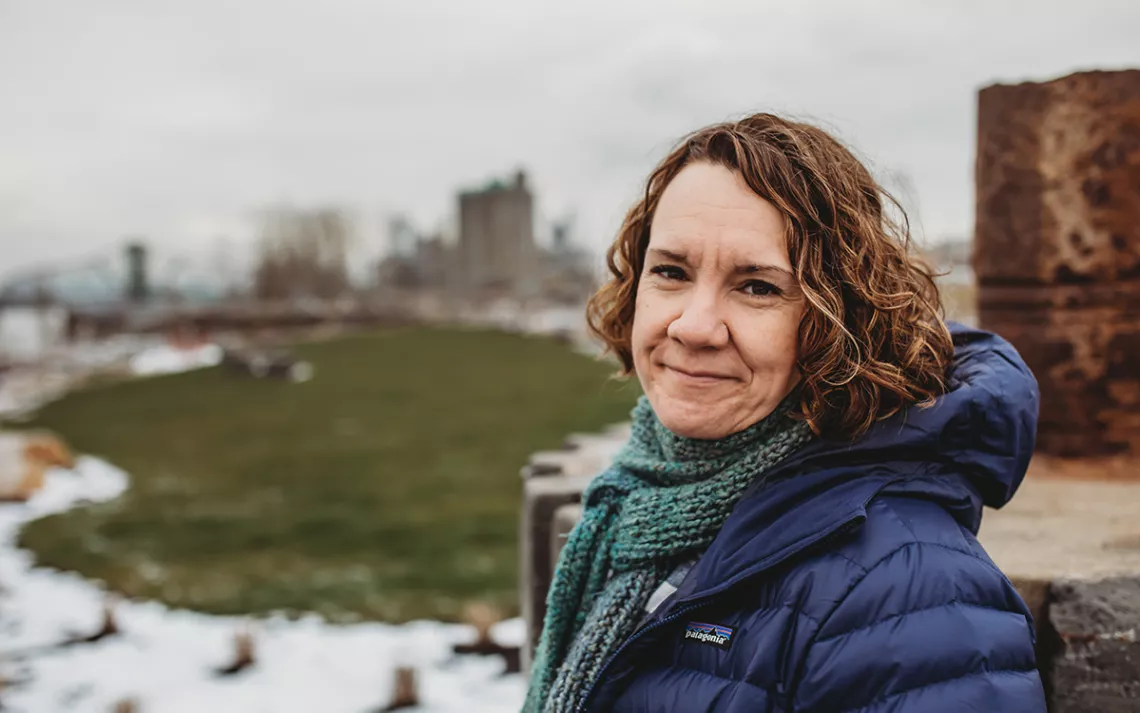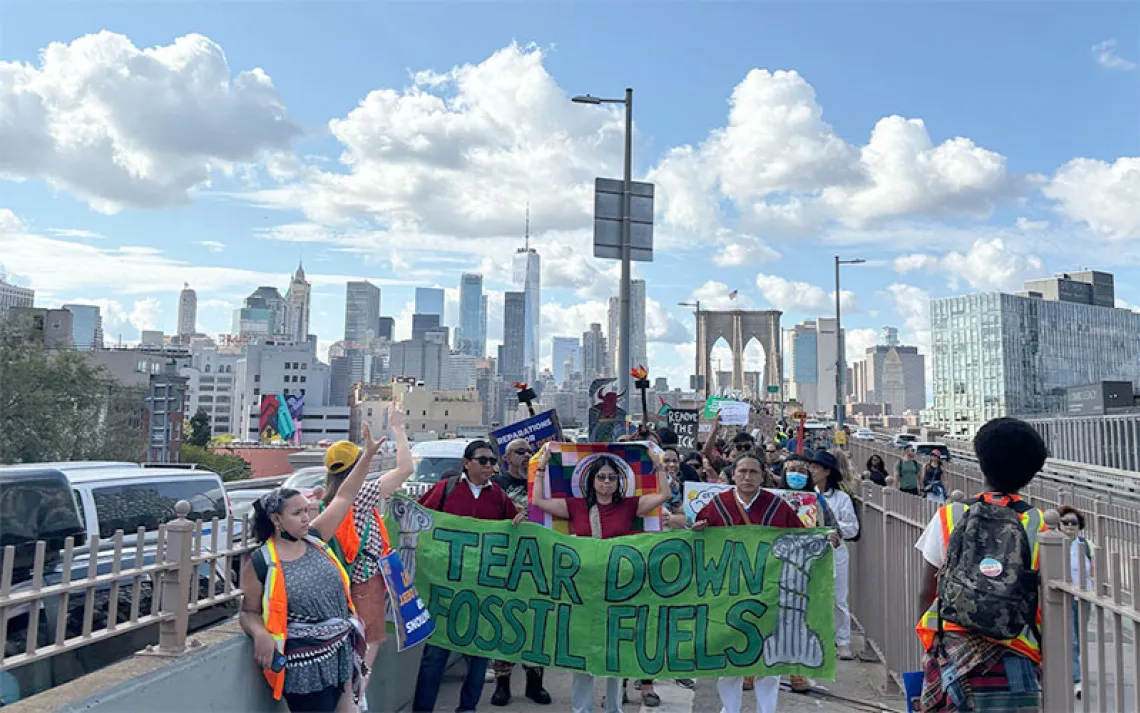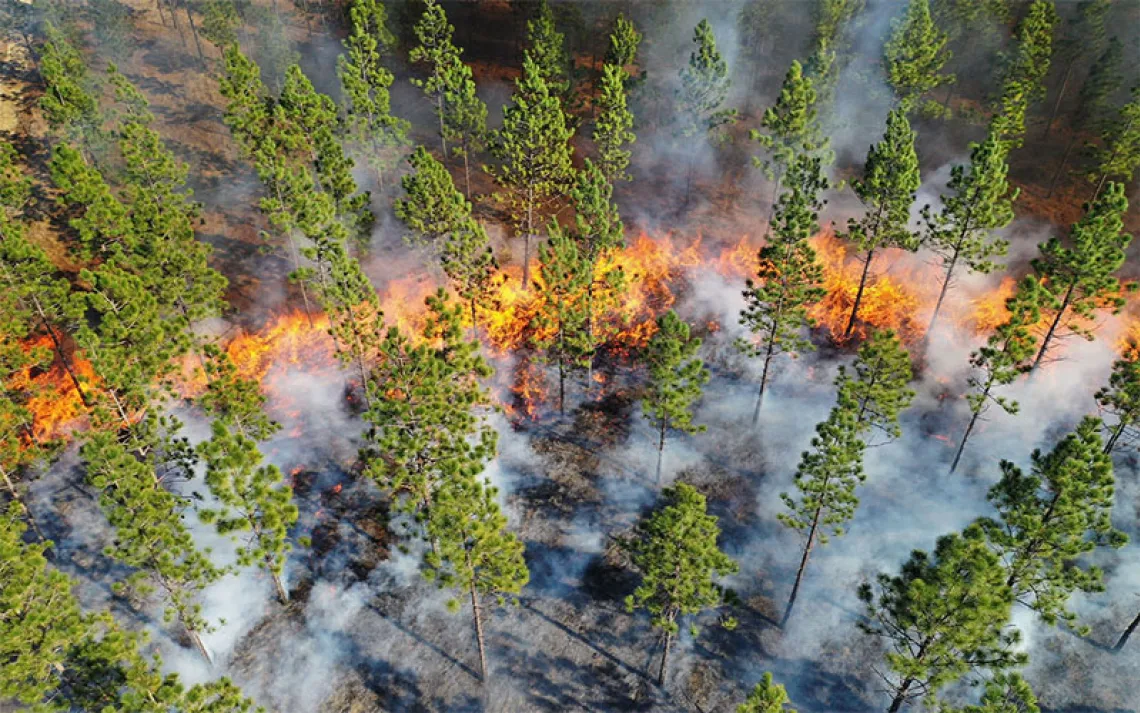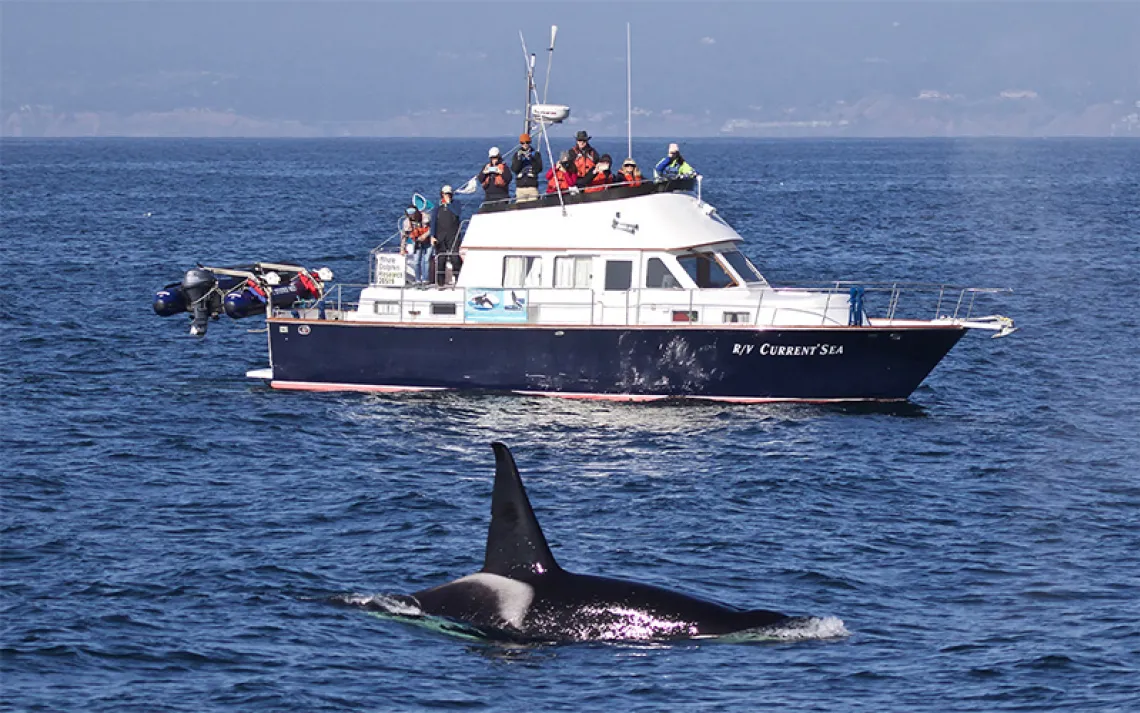In Vancouver, Washington, a Mother Helps Defend a “Thin Green Line”
Linda Garcia receives the Goldman Environmental Prize

Photo courtesy of the Goldman Environmental Prize
When Linda Garcia first heard about the proposal to build the nation’s largest crude-by-rail oil terminal at the Port of Vancouver, Washington, it didn’t seem like such a bad idea. This was the spring of 2013, and Vancouver—a bedroom community on the north banks of the Columbia River, across from Portland, Oregon—was still struggling to recover from the impacts of the Great Recession. The new industrial project promised jobs and tax revenue, and that could only be good.
But the more Garcia and her neighbors in the close-knit community of Fruit Valley looked into the plan, the more they began to question the rosy assurances they were hearing from Tesoro, the oil-refining company spearheading the idea. Of particular concern to Garcia and others was the toxic air pollution that would come with the oil terminal and the oil-train traffic. According to Tesoro’s own analysis, the terminal and oil trains would emit 40 toxic pollutants, including eight pollutants—among them arsenic, benzene, sulfur dioxide, and diesel engine particulates—at levels that could exceed state and federal public health standards. “The Tesoro PR team was pretty slick,” Garcia told Sierra in a recent interview. “But there were holes we could see through. The numbers they were giving didn’t quite match up. They could go anywhere with those numbers.”
So Garcia and her colleagues at the Fruit Valley Neighborhood Association, a community group of residents who live adjacent to the port, launched a campaign to block the oil terminal. It seemed like something of a long shot. The port commission had already voted unanimously to approve the $210 million project, which would receive some 380,000 barrels of fracked oil a day from the Bakken fields of North Dakota before transporting it to West Coast refineries. To stop the terminal would demand a years-long effort to convince the state and local agencies with project oversight to agree that the costs weren’t worth the benefits.
In the end, Garcia and fellow advocates won an upset victory over Tesoro. In January 2018, Governor Jay Inslee denied a Washington State permit to construct the terminal. In a message accompanying his decision, Inslee wrote that the terminal was “unprecedented both in its scale and the scope of issues it raised,” and agreed with opponents that “it is not possible to adequately mitigate the risks, or eliminate the adverse impacts of the facility, to an acceptable level.”
On Monday, Garcia will be recognized for her leadership in stopping the crude-by-rail project when she receives the Goldman Environmental Prize, which is among the world’s top environmental honors.
In some ways, Garcia is an unlikely environmental warrior. A social worker by training, the 52-year-old describes herself as a “nurturer” who can be uncomfortable when she has to confront “adversarial opinions.” But she also says that she has a “bulldog personality” and that, as a mom, she tapped into a mother’s instinctive protectiveness during the campaign against Tesoro. Garcia’s son has a rare condition called pulmonary hypoplasia that requires supplemental oxygen for him to breathe. Her daughter has chronic asthma, as does Garcia herself. Garcia was born in Wilmington, Delaware—“the chemical capital of the world,” in her words—and she remembers how growing up, she and her family often suffered from the odors and smells that came from the region’s chemical plants. “I didn’t want my kids to grow up with what I grew up with,” she says. The crude-by-rail terminal “just didn’t fit for our community and the vision that most of us have for sustainability.”
From 2014 to 2017, Garcia attended every meeting and hearing of Washington’s Energy Facility Evaluation Council, the agency charged with permitting projects like the Tesoro facility. “She showed up and she spoke with passion, and her passion was her health and the health of her neighbors,” says Don Steinke, an executive committee member of the Sierra Club’s Loo Wit group, which, along with organizations like Columbia Riverkeeper and Earthjustice, was also campaigning to stop the terminal. “Linda would testify about her love for her neighbors and her care for her neighbors, and how it wasn’t right that they were exposed to this crap.” Rebecca Ponzio, a campaigner at the Washington Environmental Council, says that Garcia’s testimonies “put a real face on how the Tesoro project was going to impact the city. She has been in the thick of the fight since it began.”
Speaking in public was new to Garcia, and she says that at first she found the experience “scary.” When at the podium her voice sometimes shook, and her words came out in what she calls “monotone.” But over time her confidence grew. And so did her courage, which she says came from “a simmering irritation and anger that we weren’t being heard.” As she tried to figure out how best to use her voice to be a champion for the Fruit Valley community, she found that she could be a compelling speaker by channeling the “fear and anger and concern” of her friends and neighbors. “I would carry their stories in my heart, and I would try to share specific ones whenever I was testifying and try to reach the souls of the people I was speaking before, in the hopes that they would find a clarifying moment at some point.”

Sign up to receive Sierra News & Views
Get articles like this one sent directly to your inbox weekly.
With this action you affirm you want to receive Sierra Club communications and may vote on policy designated by the Sierra Club Board.
Her emotion-laden testimonies were effective. In June 2014, the Vancouver city council voted unanimously to oppose the Tesoro proposal and then followed that with an April 2016 ordinance to ban crude oil storage at the port. The big win for the Tesoro opponent came in November 2017, when the Energy Facility Evaluation Council voted unanimously to deny the building permit. Garcia says she and her fellow advocates never imagined they would get such a lopsided vote, and that the feeling that day was one of “disbelief.” After that, Governor Inslee’s ultimate denial was a slam dunk.
The campaign against the Tesoro oil terminal changed Garcia’s life. She has moved on from her career in social work and is now employed by the Washington Environmental Council. She expects to stay focused on environmental advocacy and to do everything she can to sustain what she calls “the thin green line”—that is, the progressive Pacific Northwest’s commitment to keeping the West Coast free from major oil and gas projects.
“People do have more power than they think,” Garcia says. “The power of the people beat the power of money in this fight. I don’t think they [Tesoro] realized what they were up against.”
Garcia will be recognized with the Goldman Environmental Prize at a ceremony in San Francisco on Monday, April 29, and then at a ceremony in Washington, DC, on Wednesday, May 1.
The other 2019 Goldman Prize winners are Bayarjargal Agvaanstseren of Mongolia, for her work to protect the endangered snow leopard; Alfredo Brownwell of Liberia, for halting tropical deforestation for palm oil plantations; Alberto Curamil, an Indigenous Mapuche from Chile, for his leadership in stopping a pair of hydropower projects; Jacqueline Evans of the Cook Islands, for protecting biodiversity in a marine protected area; and Ana Colovic Lesoka of North Macedonia, for stopping a hydropower project in Mavrovo National Park.
 The Magazine of The Sierra Club
The Magazine of The Sierra Club



